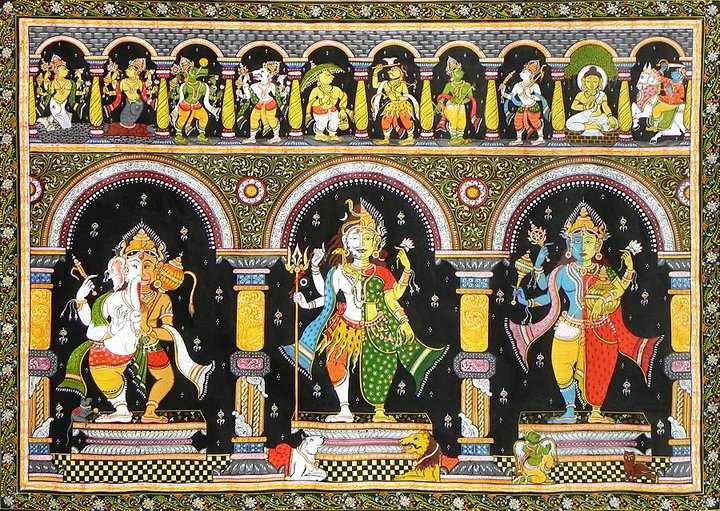 |

Aims, Objectives, Rules and Constitution
 |
|
For this purpose, we will collect texts, translate and publish them, and make them available to the public also in multimedia format, as well as in courses, seminars, and any other form of dissemination of knowledge. We will also organize events such as Conferences etc, and participate in similar events organized by others, individuals, groups, institutions, and governmental and non-governmental agencies, establish information centers and educational facilities both at physical and virtual level for the benefit of the public, and to train teachers and activists towards the pursuance of the aims and objectives presented above. Our aim is to build an open platform at international level, for the communication, understanding, and cooperation in the propagation of the awareness of the cultural, ethical, scientific, environmental, social, psicological and spiritual benefits offered by the Vedic culture and way of life. We provide assistance to independent researchers, scholars, Institutions and Organisations, for the publication and circulation of their work with reference to all the fields of Vedic culture and way of life, including the historical, religious, sociological and scientific aspects.
In order to carry out the charitable purposes, the Board of Directors have the power to: (1) raise funds, receive grants and donations, in cash or kind, and use such resources with the greatest freedom allowed by the Law of the Land (2) apply, spend, and grant funds to implement its aims and objectives, dispose of properties and resources for the above mentioned purposes (3) co-operate with and support other Organizations with similar purposes (4) do anything which is lawful and necessary to achieve the above mentioned purposes
The Organization shall have a membership. People who support the work of the Organization and are aged 18 or over, can apply to the board of directors to become a member; eligibility will be at the exclusive discretion of the Board of Directors. Membership is for life and does not need to be renewed, but the Board of Directors may remove a person’s membership if they believe it is in the best interests of the Organization. The member has the right to be heard by the Board of Directors before the final decision is made, but the decision is at the exclusive discretion of the Board of Directors. The Board of Directors will keep a list of the members. The Annual General Meeting will be held once a year in virtual mode on a suitable internet platform. All members will receive 14 days advance notice by email; participation is not compulsory, and members can also be represented by a delegate. There must be at least 2 members present at the AGM. Minutes will be kept of the AGM, in the form of video recordings; all participants will be required to show their name and to provide the required information if acting as delegates of a member. . Every member has one vote. Votes have a consultation purpose but not a decisional purpose; the Board of Directors will deliberate after collecting the votes and hearing all the presentations, objections, suggestions, etc, within 14 days from the meeting, and the resolutions will be communicated to the members through email. At the AGM, the Board of Directors shall present the annual report and accounts. These will also be available for inspection during the year, the modalities of such inspection are subject to the arrangement by the Treasurer and a record will be kept of who asked to see the documents. Any member may stand for election as a member of the Board of Directors. Members shall vote for 3 to 10 members of the Board of Directors to serve for the next year; at the next AGM they can be reconfirmed or replaced individually by a decision of the Board of Directors after collecting the votes and any other consideration. The Board of Directors must meet at least once a month, and at least 3 members must be present to be able to take decisions. These will be 1) President, 2) Secretary, 3) Treasurer, or their delegates. President, Secretary and Treasurer may take reasonable additional decisions to help run the Organization, provided the actions taken must no t conflict with the Aims & Objectives of the Organization, or with the Law of the Land. Decisions will be taken by the President after listening to all the members. The meetings will be on a virtual platform and will be recorded; subsequent decisions and communications will be by email and will be kept on file. Extraordinary meetings can be called by the Board of Directors for major changes in the Rule and Regulations and/or urgent important issues including a written request of a majority of the members; the same modalities of the AGM will be followed. Money and property must only be used for the Organization’s purposes; the Treasurer will keep accounts, and will show them to members on request. Money will be held in the Organization’s bank account, which will be operated by the Treasurer, Secretary and President. No member will get profits from the activities or properties of the Organization; loans will be repaid with the lowest possible interest and terms will be as per written agreement. Donations will be received through a traceable means (bank, etc) and on request the relevant receipt can be issued for tax deduction purposes. Donations, fees etc cannot be refunded. In the case of closing the Organization, any money or property remaining after payment of debts must be given to an Organization with similar purposes. |
|
|
